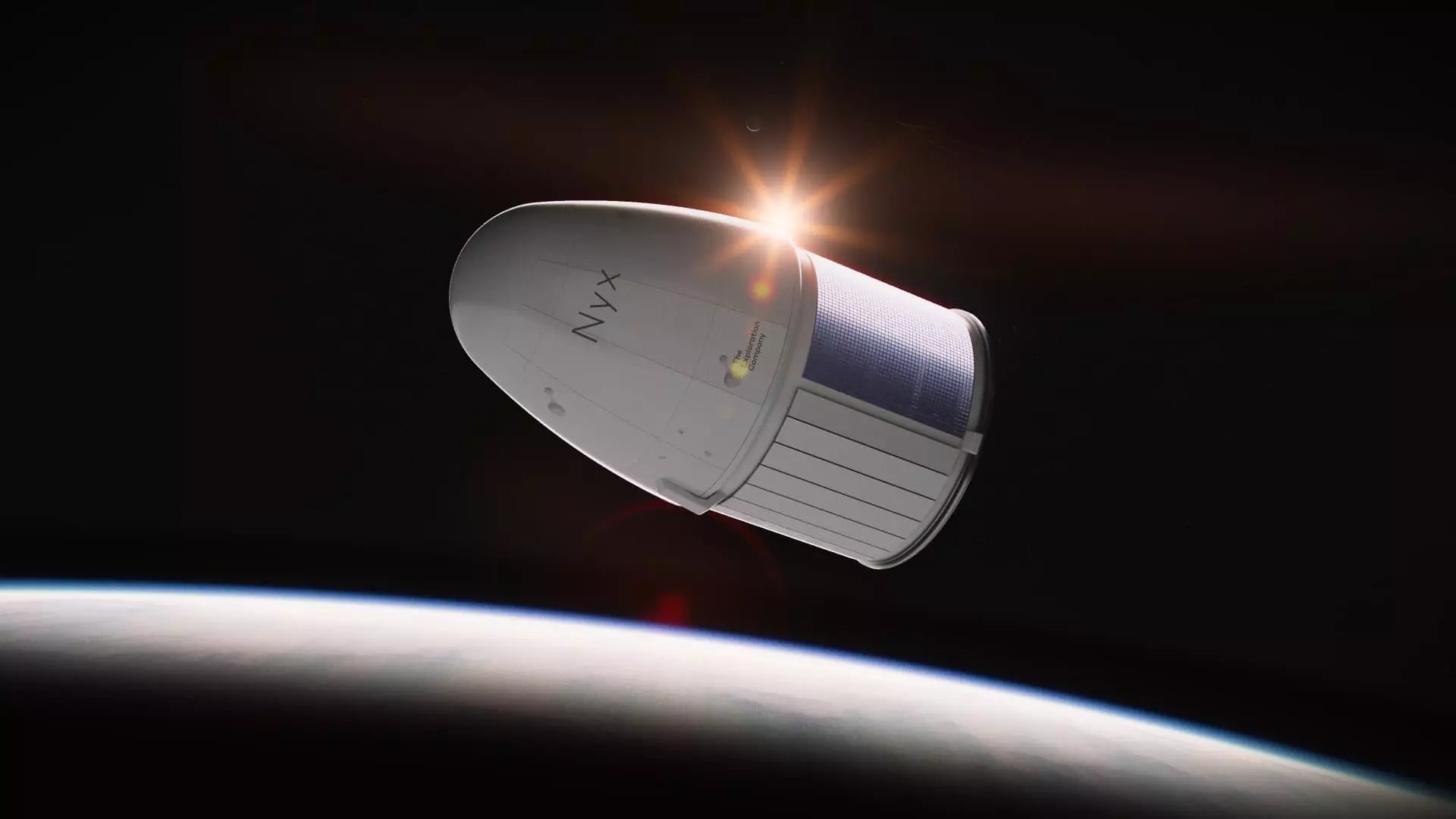In a significant move that underscores the growing interest in the commercial space sector, The Exploration Company (TEC) recently disclosed the successful acquisition of $160 million in funding earmarked for the advancement of its innovative space capsule, Nyx. This impressive round of fundraising was primarily driven by leading venture capital firms Balderton Capital and Plural, along with pivotal contributions from strategic entities such as French Tech Souveraineté, a government-backed investment group, and Germany’s DeepTech & Climate Fonds. This injection of capital not only solidifies TEC’s position in the burgeoning space transport industry but also reflects the increasing confidence investors have in the potential of commercial space exploration.
The Nyx capsule stands out as a groundbreaking solution designed to facilitate the transport of both astronauts and cargo to various space stations. One of the most compelling features of Nyx is its reusable capability; once it has successfully delivered its payload, the capsule can re-enter the Earth’s atmosphere and be prepared for subsequent missions. This sustainability aspect is crucial as the space industry moves toward cost-effective and environmentally conscious practices.
Hélène Huby, founder and CEO of TEC, emphasized the flourishing nature of the space market, highlighting that it is witnessing annual growth rates exceeding 10%. With an increasing number of nations aspiring to send their astronauts into space, as well as ambitious lunar exploration plans, the demand for reliable transport solutions has never been higher. Huby articulated that the landscape is ripe for new entrants, particularly in Europe, where TEC aims to establish a robust presence. She expressed a clear intention to design a viable alternative to existing models dominated by industry giants like SpaceX, which operates the well-known Dragon capsule.
While acknowledging the competitive landscape, which includes established players from China and Russia, Huby believes that creating a European-centric space capsule is essential. The notion of not merely relying on U.S.-based firms like SpaceX is a guiding principle for TEC as it endeavors to carve out its niche in this expansive market.
Currently, TEC is diligently working on the second iteration of the Nyx capsule, with expectations to launch it within the next year and complete development of the final model by 2028. Notably, TEC’s progress will be facilitated by support from the European Space Agency, indicating a strong backing from institutional stakeholders for its initiatives. In terms of commercial viability, TEC has already secured up to $800 million in contracts with notable partners. These agreements include crucial collaborations with enterprises like Starlab, which is at the forefront of designing the next generation of space stations, as well as Axiom Space, which represents a pivotal player in the commercial space sector.
The motivation behind these developments is not limited to just enhancing capacity but also addressing the rising demand for cargo transport associated with more frequent space missions. The interplay between an increasing number of astronauts and the necessity for additional cargo transport solutions presents a significant opportunity for TEC.
Tec’s strategic vision extends beyond traditional transport solutions. Huby envisions NYX playing a critical role in the technology required to efficiently return cargo to Earth after its missions in space. This proposition positions TEC not only as a service provider but as an integral player in the symbiotic relationship between transport and cargo recovery in space missions. The ambitious nature of such projects aligns with global endeavors led by nations including the United States, China, and India, drawing attention across the world.
As the industry approaches a new era of exploration, TEC’s advancements in reusable spacecraft design alongside its robust financial backing appear promising. With a keen focus on innovation and addressing market gaps, The Exploration Company is poised to become a significant contributor to the future of space exploration, ultimately reshaping the way humanity engages with the cosmos.

